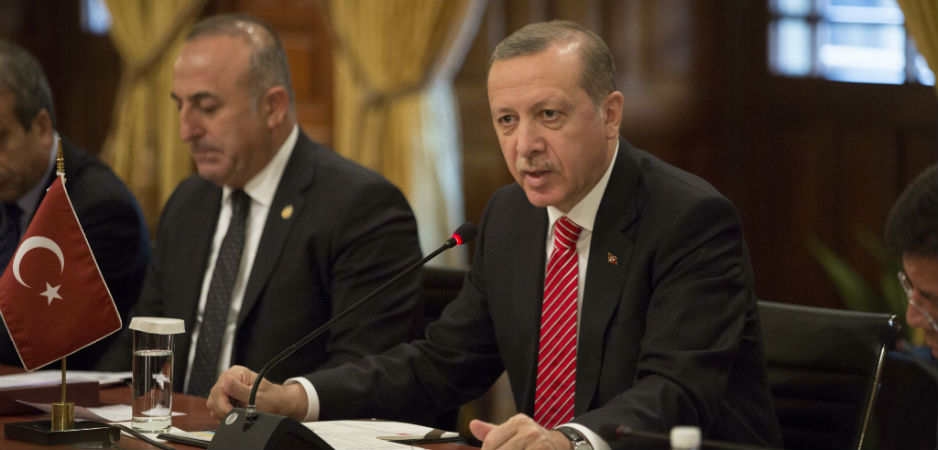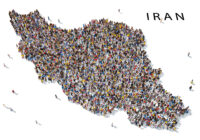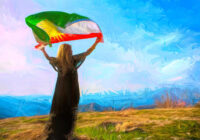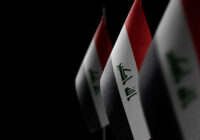President Erdogan’s goal is to stamp his legacy into the story of Turkey for all time.
The recent election in Turkey has proved thought-provoking if nothing else. Unable to gain an overall majority in the country’s June general election, Turkish President Recep Tayyip Erdogan called for another poll in November. His gamble was to use conflict between the Turkish government and Kurdish forces and the breakdown of Syria to stir up fear inside Turkey, thus convincing voters that his Justice and Development Party (AKP) would be the only party able to both deliver economic prosperity and provide security.
The gamble paid off. Other parties were convinced that there could only be another hung parliament this time and lacked conviction or passion in their campaigns. But the AKP refocused their strategy and kept close to party lines, winning back some votes that had been lost to the pro-Kurdish Peoples’ Democratic Party (HDP) and the right-wing Nationalist Movement Party (MHP), ultimately returning a decisive victory. With 316 seats, Erdogan’s party will shortly form a majority government.
In 2001, Erdogan and his close acolytes judiciously formed the AKP after the collapse of the Turkish economy a year before. In 2002, the AKP stood for election and took 34% of the vote, forming a majority government. The AKP succeeded partly because of the sheer political and economic leadership vacuum that had engulfed the nation at the end of the 20th century. In 1997, there was a “post-modern” coup d’état when the military intimated it would overthrow the government—at the time felt to be introducing Islamism. It led to political and economic instability and, eventually, the financial crisis of 2001.
“Post-Islamic Turkey”
Since the 2002 election, the AKP have increased their majority in each subsequent election apart from June’s. Turkey in the 21st century, including in the last six months, has therefore been all about one man: Erdogan.
Erdogan’s goal is now to stamp his legacy into the story of Turkey for all time. By remaining the elected president, potentially with greater executive powers, he indubitably wishes to become the man who is the executive president by 2023, when Turkey celebrates the centenary of the founding of the modern secular republic. He has positioned himself and his party as the rightful heirs of Turkey.
The question now is what happens next. There are a number of reasons to be optimistic, but cause to be pessimistic too.
Erdogan has set his sights on a Putin-style presidency, but while this creates a sense of stability among the populous, his Turkey will be strongly ideological, with a post-Islamic outlook. “Post-Islamic” refers to the ability to empirically move beyond notions of Islamism, which suggests a desire for an Islamic state—a caliphate—of sorts. Rather, post-Islamists have realized that there can be no Islamist solution to politics without acceptance of non-theological abstractions of Islamic principles, including equality, human rights and secularism. Combined with a confident stance on the wider Middle East and the Muslim world in general.
The AKP have achieved strong and sustained economic growth for Turkey, which has benefited vast segments of the population. But since 2011, around one in seven families have lived in poverty. An unequal society is an unstable one, especially when it is already polarized by ethnic, religious and cultural divisions. There is also the enduring problem of the so-called “Kurdish issue”—which is, in many ways, the “Turkish issue.”
The Kurds
The Kurds, since the inception of the republic, have routinely faced the brunt of the state. The ongoing theme has been misrecognition—first attributed to their lack of “Turkishness,” which was defined by the center at the expense of the periphery. In the 1930s, the modern republic, literally overnight, rendered a significant part of the population illiterate, by changing the character, content and importance of the Turkish language for recognition by the state.
As the secular elites concentrated wealth, power and authority at the center, those at the margins, including other groups such as Alevis and Christian minorities, faced further marginalization. It was in the late 1970s that the Kurdish rebel group, the Kurdistan Workers’ Party (PKK)—which is classified as a terrorist organization by the government—formed. Since 1984, there has been violent conflict between the PKK and the Turkish state, with as many as 50,000 people losing their lives, mostly Kurdish. In 2009, a peace process commenced under the personal direction of Erdogan.
Many were beginning to write off Erdogan as the Vladimir Putin of the Middle East, concentrating on his authoritarianism and his iron rule over the state. But there is no doubt that his party is back, and with the mandate from the population to carry on with what they have started.
In 2012, a formal cessation of violence between the PKK and the state was announced, and the existing Peace and Democratic Party (BDP), formed in 2008, evolved into the HDP in 2014. The HDP contended the 2015 election in June, winning 80 seats. In the November election, the HDP ran again, keeping their position in parliament with 60 seats. However, they pushed the MHP down as the fourth party in Turkish politics. The HDP, a Kurdish party in parliament with 60 seats, was simply unimaginable a few short years ago.
This victory, of sorts, has come at great cost. Turkey witnessed its own 9/11-equivalent tragedy on October 10, when two suicide bombers attacked a peace rally in the nation’s capital, Ankara. Over 100 mostly young people were harmed, with pictures of the bombing and its aftermath watched the world over.
With ongoing fighting against the PKK in the southeast the government bombing Kurdish groups hostile to the Islamic State, and with a greater clampdown on dissenting voices in the media, including the seizure of İpek Medya Grubu, a large conglomerate that includes mining and media, there was an acute sense that Turkey was on the brink.
The idea of using fear as leverage over his own people may have won an election for his party, but if Erdogan champions causes too narrow in design or application, he runs the risk of ostracization within the region. Many fear that his iron grip over the judiciary, media, academy and the military will only strengthen further.
This potentially means a great deal of power in the hands of one man. While opening up the media through regulation, the AKP have also used their powers to shut down disagreeing voices, specifically in the case of the İpek Medya Grubu. The military has been mollified so it cannot take authority into its own hands as it did in the past, and so it is the intelligence and policing services that lead to concerns regarding a security state.
This could have serious implications for society. The judiciary and the academy were once in the hands of the secular liberal elites until the AKP’s dominance. Now, there is a worry that, if misdirected, these arms of society could also serve the narrower interests of the Muslim political and economic bourgeoisie.
Caught in Regional Turmoil
There are other issues that have concerned a much-battered Turkey in the last two years. The rise of the Islamic State, out of the ashes of the war on Iraq and the inability for global actors to take a firm line on Bashar al-Assad and Syria, has meant greater worries for Turkey. Foreign fighters from all over the Muslim world but also from western Europe fly into Turkey and then make their way into Syria. Coupled with the Syrian refugee crisis, where Turkey already hosts over 2 million people, there are fears in Europe of a xenophobic, orientalist and Islamophobia nature that have seen parties lurch even further to the right, especially in Central Europe.
Germany has taken a bold stance on accepting refugees, but it too has found itself caught in a bind. With many hundreds of German-born Turks and indigenous “reverts” in the Islamic State, there is a sense of impending doom as many Syrians and other Muslim refugees enter the country, seeking asylum. The flow of “threatening” Muslims into and out of Turkey has caused a great deal of consternation among political elites and media opinion-formers in the West.
Democracy is rarely perfect—and even less so in the Middle East. Accusations of electoral fraud, especially in the southeastern parts of Turkey, have been thrown around. There is reluctance on the part of some to express their true opinions on Erdogan for fear of retribution, intimidation or even symbolic and actual violence.
The bombings in Diyarbakir, Suruc and Ankara killed 138 people, with hundreds injured. Most of the victims were Kurds. The surge in HDP votes in June rescinded in the November election, but the breakdown in peace talks between the Kurds and the government could now go in two directions. As prime minister, Erdogan and his party started the recent peace process, pushing it further than ever achieved in the past. There is every reason, now with Kurdish parliamentarians in play, to make this a realistic endeavor.
Erdogan’s Legacy
Tensions between diverse groups in Turkey are at an all-time high. It is thus important to quash these divisions—to restore confidence in the peace across a wide spectrum of society. Many were beginning to write off Erdogan as the Vladimir Putin of the Middle East, concentrating on his authoritarianism and his iron rule over the state.
But there is no doubt that his party is back, and with the mandate from the population to carry on with what they have started. Already, the financial markets have showed renewed interest in Turkey as a suitable place to invest money and capital, immediately re-stabilizing the Turkish lira against heavy falls in recent months. The Kurdish cause is not without promise, moreover. With 60 seats, the HDP is the third party in politics. This is a major achievement for the Kurds and for Turkey. Much could be sustained on the back of this outcome.
It is clear going forward that Turkey remains unpredictable but always beguiling and rarely unexciting. But if it is Erdogan’s legacy to be the man who solves the “Kurdish issue,” to maintain Turkey’s position geopolitically and to ensure that the wealth and security of the nation is the interest of fair, just and tolerant society as a whole, his dream may become Turkey’s heritage as the myth turns into legend.
The views expressed in this article are the author’s own and do not necessarily reflect Fair Observer’s editorial policy.
Photo Credit: Presidencia de la República Mexicana / Koraysa / Shutterstock.com
 We bring you perspectives from around the world. Help us to inform and educate. Your donation is tax-deductible. Join over 400 people to become a donor or you could choose to be a sponsor.
We bring you perspectives from around the world. Help us to inform and educate. Your donation is tax-deductible. Join over 400 people to become a donor or you could choose to be a sponsor.
Support Fair Observer
We rely on your support for our independence, diversity and quality.
For more than 10 years, Fair Observer has been free, fair and independent. No billionaire owns us, no advertisers control us. We are a reader-supported nonprofit. Unlike many other publications, we keep our content free for readers regardless of where they live or whether they can afford to pay. We have no paywalls and no ads.
In the post-truth era of fake news, echo chambers and filter bubbles, we publish a plurality of perspectives from around the world. Anyone can publish with us, but everyone goes through a rigorous editorial process. So, you get fact-checked, well-reasoned content instead of noise.
We publish 2,500+ voices from 90+ countries. We also conduct education and training programs
on subjects ranging from digital media and journalism to writing and critical thinking. This
doesn’t come cheap. Servers, editors, trainers and web developers cost
money.
Please consider supporting us on a regular basis as a recurring donor or a
sustaining member.
Will you support FO’s journalism?
We rely on your support for our independence, diversity and quality.







